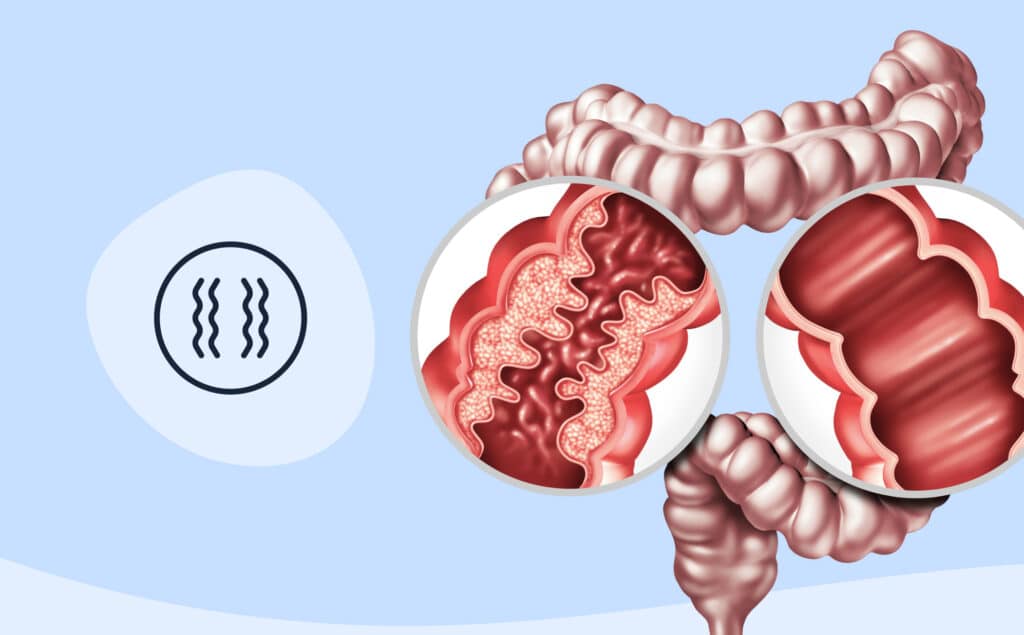Irritable bowel syndrome (IBS) and inflammatory bowel disease (IBD) sound similar, and it’s common for people and the media to mix up the terms or use them interchangeably. While it’s true that IBS and IBD have similarities, they are also very different and the ways they are treated are different, too.
If you have digestive issues and need help, but you’ve never been diagnosed, a good place to start is by asking yourself these 5 questions. If you want even more reasons why it’s critical that you find out which condition you have, read below:
- While people living with IBS or IBD may experience periods of flares, followed by periods without symptoms only IBD is progressive, which means it can get worse if it’s not properly managed. IBS, on the other hand, is considered non-progressive.
- IBD can lead to severe complications, such as strictures, fistulas, or bowel obstructions. IBS can also cause debilitating symptoms, but does not cause this same type of structural damage to the GI tract.
- IBS and IBD often cause stress and can have a significant impact on mental as well as physical health. But when you know the specific condition you have, it can help you get the type of behavioral health support that will help you the most.
- IBS and IBD require specific treatments tailored to each condition. For example, treating IBD might require special medications or even surgery in severe cases.
- While both IBS and IBD may improve when you make changes to your diet, the specific recommendations a registered dietitian offers may vary depending on which condition you have.
The GI experts at Oshi Health understand the full range of digestive conditions and can accurately diagnose you and get you the multidisciplinary care, medications, nutrition guidance, and behavioral health support you need to treat your condition and improve your quality of life. Schedule an appointment.
Oshi is your partner in digestive health
Feel like your digestive concerns are running your life? You’re not alone—and we’re here to help you find lasting relief.
Oshi Health GI providers, gut-brain specialists, and registered dietitians work together to address the root cause of your symptoms and find solutions that actually work for you.
Whether you’re dealing with chronic digestive issues or unpredictable symptom flare-ups, our GI specialists deliver:
✔ Personalized care plans tailored to your lifestyle
✔ Science-backed strategies to calm your gut
✔ Compassionate, whole-person care
✔ And so much more!
Ready to take control of your gut health?





